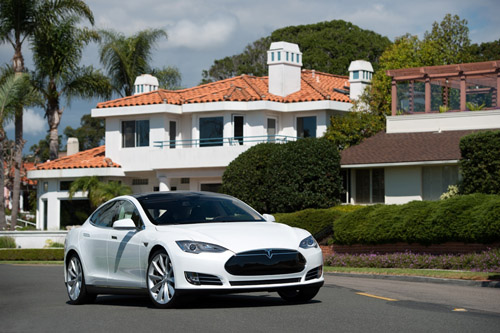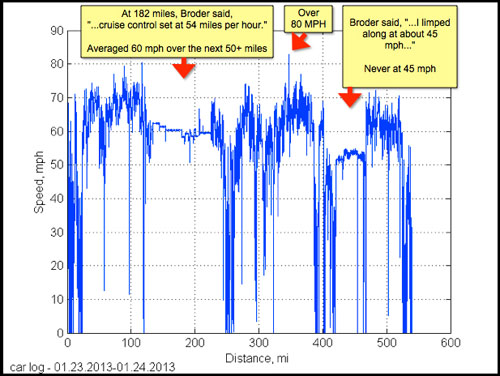- Qualcomm Launches Snapdragon 4 Gen 2 Mobile Platform
- AMD Launches Ryzen PRO 7000 Series Mobile & Desktop Platform
- Intel Launches Sleek Single-Slot Arc Pro A60 Workstation Graphics Card
- NVIDIA Announces Latest Ada Lovelace Additions: GeForce RTX 4060 Ti & RTX 4060
- Maxon Redshift With AMD Radeon GPU Rendering Support Now Available
Tesla CEO Debunks New York Times’ Review of Model S
One of the worst things any company that sends out products for review can experience is having one fall into the hands of someone with a vendetta. Unfortunately, it’s not exactly uncommon, and it can be seen both by small and large publishers. The most recent case comes to us from Tesla, which sent the New York Times a Model S for the sake of taking a technological look at it. It was then passed on to John Broder to handle the article, which was posted a little under a week ago.
In his article, Broder criticizes the behavior of the car in cold weather and the fact that it runs out of energy quick with normal usage. In the same article, he showed a picture of himself standing next to a power-depleted Model S on the back of a flatbed truck. That’s right – the car ran out of power, and thus he was left stranded.

A couple of years ago, popular TV show Top Gear did a review of the Tesla Roadster and skewed some facts for the sake of comedic value. Tesla Motors didn’t appreciate it, and sued over it. Since then, the company has equipped all of its review cars with a detailed logging system to avoid such slander in the future. It’s thanks to this logging that John Broder has been ousted as a potential liar.
In a blog post, Tesla CEO Elon Musk posted a couple of graphs that illustrate where the inconsistencies lay. When Broder claimed to stick to 45 MPH, he didn’t. When he claimed to turn the temperature down, he actually raised it. When he claimed the car ran out of power and had to call in a tow, it’s seen that the car actually did still have power. While it’s hard to assume that Tesla’s logging is bullet-proof, there are many inconsistencies between Broder’s reports and the logs to favor Tesla.

It’s worth noting that Broder has a long history of writing about the oil industry for the Times, and in an article he published last year, we can see that he wasn’t much of a fan of electric cars from the get-go. Did Broder know about the logs Tesla had in place? I’m thinking “no”, based on the stark contradictions between what’s recorded in the logs and what he reported in his article. Either way, neither Broder nor the Times have followed-up on Musk’s findings, but being a newspaper focused on journalistic integrity, we’d expect to see one before long.




